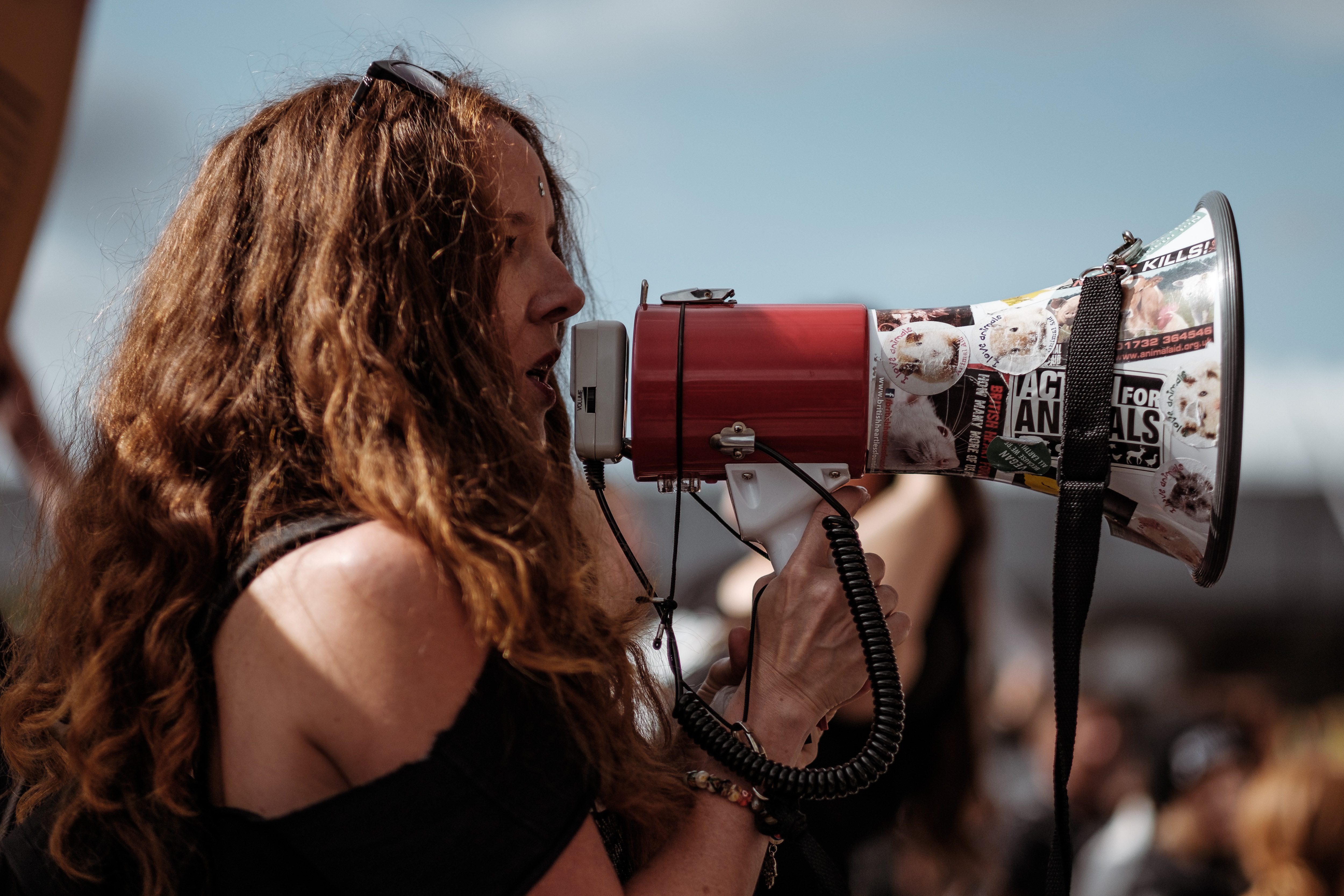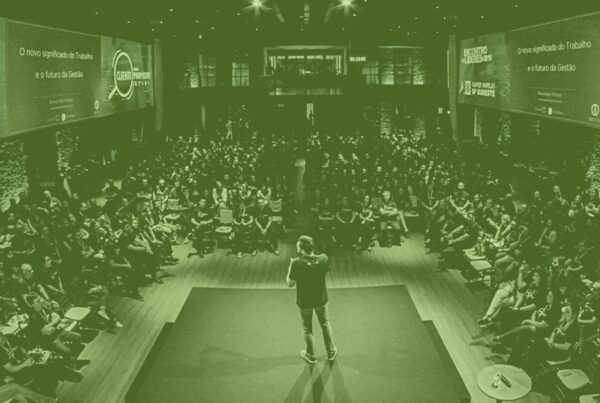Have you ever planned an event just because it was routinely scheduled, rather than being held for a specific reason? You’re not alone. An event’s ‘why’ is often overlooked in event planning, according to a report by American Express Meetings & Events. The ‘why’ is the reason or purpose for the event, and also includes the intended outcome for both the brand and the attendees. In essence, it’s what you want event goers to experience.
To further explain, we’re going to break down:
- How to think about your event’s ‘why’
- Why authenticity matters in marketing a purpose-driven event
- How to use the event’s purpose to fuel the structure
- How to enhance attendees’ connection with the purpose
- Why you need to track audience engagement with your event’s ‘why’
- The challenges of planning events with a firm ‘why’
- Benefits of planning a purpose-driven event
- And the key takeaway for planning events with a purpose

Planning events with purpose: the real meaning
So, you can see we’re all for planning events with purpose. But let’s zero in on what ‘purpose’ actually means in the context of event planning. The purpose of your event isn’t just the client’s goal, which could look something like:
- Increased sales
- Building customer loyalty
- Or improving product knowledge at a launch
This is just the foundation of the purpose. The real heart of the purpose actually equates to the brand’s mission or their ‘why’. If you have just started planning your event, check out our for tips and tricks that will help you focus on your “why”.
 Finding the ‘why’
Finding the ‘why’
You may have heard a term like ‘finding the why’ thrown around for the past few years. And this, of course, stems from Simon Sinek – well-known for his TedTalks and his book Start with Why. Simon’s premise is that great leaders inspire action because people are drawn to why those leaders do something, not what they do.
So, we understand Simon’s principles stem from a place of leadership. In fact, he often cites Steve Jobs in his role as CEO of Apple as an example. Now, in the event world, think of the brand you’re planning an event for as Steve Jobs in this scenario. Your goal, as an event prof is to market to and attract, indeed inspire, the people who hold the same values as the brand you represent. And of course, the event itself will be an extension of that.
As we dive into this article, you’ll notice that we mention sustainability quite a bit. We’ve chosen this value as a way to give you concrete examples of how to project an event’s ‘why’. But remember, this can be used for any value, whether it’s a worldwide concern like sustainability or social equality, a localized passion, or even more broad, like a spirit of generosity or innovation. Once you’ve drilled down to your event’s ‘why’, the same ideas apply.
Marketing in line with the ‘why’
Like most aspects of your event planning journey, attendee profiles provide the foundation for success. You should turn to these personas to inform your marketing approach when planning events with purpose. Look for connections between the values you know your personas to have, and the purpose of your event. Above all, when you start planning events with purpose, you must ask yourself ‘what’s in it for them?’ This simple question gives you the direction you need to make sure you’re not only meeting the needs of your client but that you’re also meeting the needs and expectations of your audience. Determining what’s in it for event-goers is key to a remarkable event.
Authenticity is a vital component of forming that connection and getting prospects excited about the event. In fact, the need for authenticity is only growing in our increasingly conscious society. That’s where brands that don’t just stand for profit, but for social good have an advantage. For instance, a brand with a strong thread of sustainability running through everything they do will be able to form an intimate connection with prospects who believe it’s time we started looking after the environment.
Our increasingly conscious society is owed in part, to millennials. You see, millennials are inspired more by experiences than material products. Luckily the event industry is all about creating magical, impactful experiences for attendees. Be sure to highlight this in marketing campaigns and capitalize on the inherently experiential nature of events.
So, why are experiences so important to attendees? Well, the impact of experience is lasting. A great experience is a platform for forming new or deeper personal connections and fostering a sense of community. It’s also a way of injecting meaning into our lives and providing learning opportunities for personal growth.
Why should you be so concerned with what millennials think? If you aren’t already aware, millennials are a huge part of the population already but are actually on the cusp of overtaking the baby boomer generation in the US. This is why it’s just so important that you know your audience. In fact, “a survey found that 75 percent of millennials believe businesses are too focused on their own agendas”. Make sure the event itself and the marketing makes clear that you’re providing 10x value which aligns with prospective attendees’ beliefs and interests.
 Create a purpose-focused event structure
Create a purpose-focused event structure
All the different aspects of your event’s structure should communicate the purpose of the event. This ranges from the topics covered, to the format of your event and even event downtime. Let’s take a closer look:
Choice of appropriate conference topics
Choosing the right conference theme or even the topics covered is perhaps the most obvious way to incorporate your event’s purpose. Although event themes are often reinvented from one year to the next, you still need to make sure the theme you decide on resonates with the core values of the client. And of course, plan for topics that are relevant to brand values and interesting to attendees.
 Decide on meaningful speakers
Decide on meaningful speakers
We talked in another blog here about the importance of choosing key speakers wisely in order to engage the audience best. But, what we didn’t cover, was how choosing speakers whose values align with the event’s purpose could skyrocket your engagement, contributing to overall event success.
What do we mean by this? Well, it’s really quite simple. It’s about looking beyond their topic of expertise, to their personal brand. If your client is a tech company that prides itself on sustainable values, your key speaker about a particular aspect of tech shouldn’t be someone who publicly disagrees that climate change is happening. I mean, you could. But, imagine how immersed your attendees would be if the speaker you chose could cover the same topics, but instead was campaigning against the use of plastic straws. Powerful stuff to keep in mind when planning events with purpose.
 Include breakout sessions
Include breakout sessions
Breakout sessions are an event staple when it comes to planning events with purpose. That’s because they can be used to complement the main ‘why,’ making it even easier for attendees to connect with and hold onto. For instance, you might be planning a sustainable conference, because that’s a value the brand holds. But the product or service they sell isn’t something obviously related to sustainability. In that case, you could schedule breakout sessions that aren’t overtly about their product or service, but relate to their value for sustainability.
For instance, you can plan short workshops that help attendees learn about waste management at events – like the choice between meat and vegetarian meals or opting between disposable and reusable coffee mugs. The best thing is, you can make this work for events of any kind, for any brand. As long as the values behind the breakout sessions mesh with those of the brand and attendees, you can use them to add value to the event experience.
 Event downtimes with purpose
Event downtimes with purpose
Just like event breakout sessions, you can also use event downtime to reinforce an event’s purpose. Event breaks are usually dedicated to serving refreshments, so you can look to food and beverage choices that represent a particular value. Like serving food made from local produce, for example.
You could also consider the facilities used or some optional activities to tailor the event just right. For instance, if you needed to highlight sustainability in relation to your client’s mission, you could plan for attendees to enjoy their snack in local gardens. Or, if you need to keep it in-house, consider playing some short films in the background, giving event-goers the option to learn about a particular aspect of sustainability, perhaps inspiring them to take a further interest and get involved.
 Further enhance audience connection with your event’s ‘why’
Further enhance audience connection with your event’s ‘why’
On the Eventbrite blog, Camilla Woodhouse explains that having a clear sense of purpose makes event planning more focused, consistent and always keeps the audience at the front of mind. Let’s look at some specific ways you can put that clear sense of purpose to work.
Drive the purpose home
Find small ways to ensure your event’s ‘why’ resonates on every level. For example, you could print an event overview at the back of nametags to drive home the event’s purpose. You could also ensure the brand’s mission is clear by featuring their mission statement on the back of the event team’s t-shirts or even printing a pertinent question that sparks conversation among attendees.
 Value-add
Value-add
It’s important not to pad out the event with extra sessions or speakers just because they tie in neatly with your event’s ‘why’. They still need to add value to the experience of your attendees. When planning an event with purpose, you must be sure to tailor each aspect as a way to share relevant takeaways. Your audience will appreciate it if you show them their time is valued.
Go paperless
Boycotting the use of paper information tools is, of course, a way to connect with attendees who respect sustainability. But, you’ll also find digital event apps useful in general when planning events with purpose. That’s because of their ability to personalize the event experience for event goers. You can find ways to project your event’s values through chatbots and the way they communicate, right down to recommending sessions that best match an attendee’s interests. Another great idea for tying your event app to sustainable values is to create an app feature for event goers to monitor their use of waste. You could even arrange rewards for those who hit targets for minimal waste.
 Create a story
Create a story
Storytelling is a compelling way to connect with attendees when planning events with purpose. Once you’ve got a good understanding of the brand’s ‘why,’ the ideas should be flowing for ways you can tell their story. One way of doing this (which we love) is to use vendors with shared values to create a thread that runs through the entire event, reinforcing the brand message. You could achieve this by hiring local food producers, or event nonprofits that provide employment opportunities via a catering service.
Match the venue to the ‘why’
When planning events with purpose, venue choice can make a big impression. You can get creative in finding a venue that reinforces the event’s why, which can be a lot of fun. Both for you and event-goers! One idea that stands out here is to repurpose existing venues in unexpected ways – like farms or skating rinks. Need some more inspiration? Check out our blog on unique venues here.
 Make smart sponsorship choices
Make smart sponsorship choices
You must look for brand alignment when choosing event sponsors. If you can attract sponsors that align with your event’s purpose, it will enhance the thread of purpose running through your event. If you landed a sponsor at odds with your event’s ‘why’ it would only confuse your attendees and contradict the values of your client.
Track the success of the ‘why’ sticking with attendees
So, you’ve planned an event with purpose – fantastic! But, you shouldn’t just leave it there and move on to the next one. Now, it’s time to track whether the ‘why’ has hit home with event-goers. You should think about this regarding overall attendee engagement. But also by finding out at what points in the event they could really connect with the ‘why’. As always, you should turn to your post-event surveys and social listening to determine the success of your efforts. Depending on the specific event and its purpose, you could also look at metrics like merchandise sales to understand this too. These insights will be invaluable to inform your decisions whenever you’re planning events with purpose!
 Challenges of event planning with your ‘why’ firmly in mind
Challenges of event planning with your ‘why’ firmly in mind
There are a couple of challenges to keep in mind when planning events with purpose. Specifically, not deviating from the ‘why’. It’s easy to get carried away and widen the event to a bigger audience who may not connect with the ‘why’. But, even though this may bring about greater ticket sales, we all know this isn’t the only way to measure event success. Similarly, you need to make sure you don’t include speakers who aren’t a fit with the values or purpose, even if you’re tempted because they’ve been making a big name for themselves.
Round-up of the benefits of getting clear on your events ‘why’
Planning events with purpose come with a surprising amount of benefits when done right. Take a look:
- Produces more qualified leads when clearly communicating the “why” through marketing
- Strengthens the brand’s following
- Results in finding new brand ambassadors
- Creates a robust network of like-minded vendors
- Facilitates connections with sponsors that have shared values
- This means event-goers will already be lining up to attend the brand’s next event
- Improves chances for brand longevity because of increased sales
- Helps you and your client gain a better understanding of the target audience
- Overall: event success for you, the client, and the event-goers
 Key takeaway: Be authentic
Key takeaway: Be authentic
In our world of information overload, people are becoming more adept at spotting inauthenticity. The most important thing to remember when planning events with purpose is that it can’t be faked. Attendees will notice it; there’s no doubt. And for future events you prepare for the same client – you’ll need to be able to reproduce that sense of purpose. Not easy to do, if it’s inauthentic!
Not every event has to be or can be about affecting social change on a large scale. But, if you can tie the immediate reason for holding the event in with core elements of the brand values that speak to attendees’ own values and interests, and communicate that to them, the event will be more successful and memorable.
Good luck! And let us know what your favorite thing is about planning events with purpose. Just drop us a comment below.











